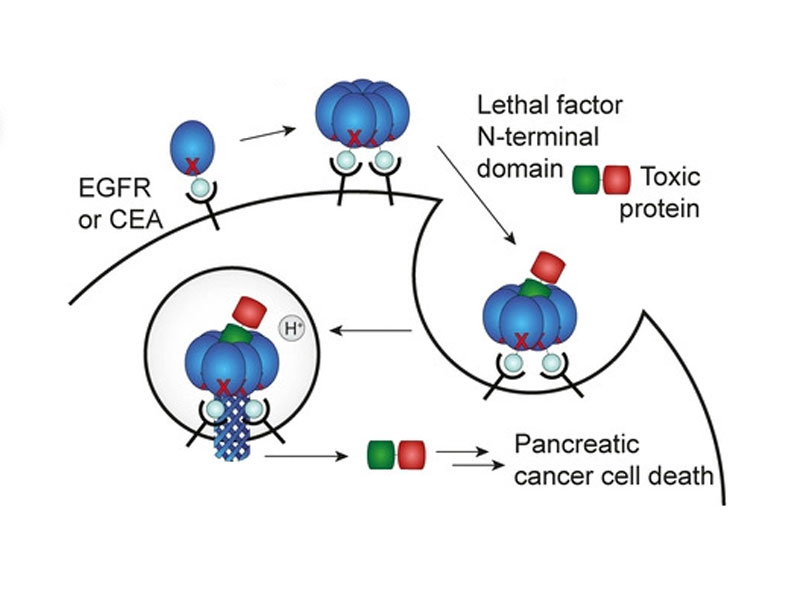
Anthrax Protective Antigen Retargeted with Single-Chain Variable Fragments Delivers Enzymes to Pancreatic Cancer Cells

Anthrax Protective Antigen Retargeted with Single-Chain Variable Fragments Delivers Enzymes to Pancreatic Cancer Cells
First published: 05 May 2020 https://doi.org/10.1002/cbic.202000201
Alexander R. Loftis, Dr. Michael S. Santos, Dr. Nicholas L. Truex, Dr. Marco Biancucci, Prof. Dr. Karla J. F. Satchell, Prof. Dr. Bradley L. Pentelute
Abstract
The nontoxic, anthrax protective antigen/lethal factor N-terminal domain (PA/LFN) complex is an effective platform for translocating proteins into the cytosol of cells. Mutant PA (mPA) was recently fused to epidermal growth factor (EGF) to retarget delivery of LFN to cells bearing EGF receptors (EGFR), but the requirement for a known cognate ligand limits the applicability of this approach. Here, we render practical protective antigen retargeting to a variety of receptors with mPA single-chain variable fragment (scFv) fusion constructs. Our design enables the targeting of two pancreatic cancer-relevant receptors, EGFR and carcinoembryonic antigen. We demonstrate that fusion to scFvs does not disturb the basic functions of mPA. Moreover, mPA−scFv fusions enable cell-specific delivery of diphtheria toxin catalytic domain and Ras/Rap1-specific endopeptidase to pancreatic cancer cells. Importantly, mPA−scFv fusion-based treatments display potent cell-specific toxicity in vitro, opening fundamentally new routes toward engineered immunotoxins and providing a potential solution to the challenge of targeted protein delivery to the cytosol of cancer cells.



